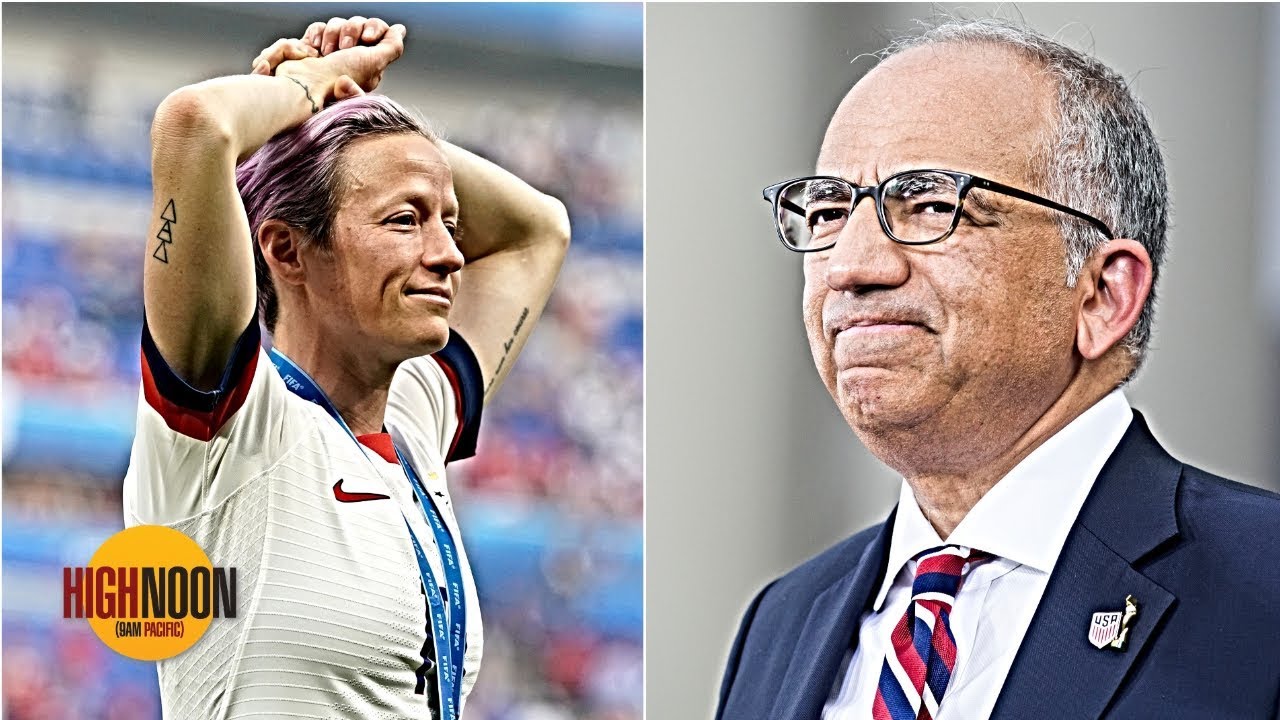Did U.S. Soccer make things worse by claiming to pay women more than the men? | High Noon

The president of the United States Soccer Federation Carlos Codeiro wrote an open letter stating that members of the U.S. Women’s National Team have actually earned more than their male counterparts over the past 10 years, sparking backlash from both national teams.
High Noon’s Bomani Jones and Pablo S. Torre dissect Cordeiro’s decision to release these alleged figures with Torre saying the USSF have “bungled” the whole situation.
How has the success record of the U.S. women’s team compared to the men’s team factored into the debate about pay disparity?
The issue of gender pay disparity has been a hot topic of discussion for generations. Despite significant strides towards gender equality, women continue to be paid less than men in many industries, including professional sports. In recent years, the U.S. women’s soccer team has been at the forefront of this conversation, publicly advocating for equal pay and filing a lawsuit against the U.S. Soccer Federation (USSF) in 2019. However, a recent revelation from the USSF has caused controversy and raised questions about the organization’s commitment to addressing this issue.
In July 2021, the USSF filed a court document claiming that the women’s national team has actually been paid more than the men’s national team over the past four years. This assertion was based on the fact that the women’s team has earned more in salaries and bonuses than the men’s team during that time period. However, this claim ignores the larger context and does not tell the full story.
Firstly, the women’s team has played significantly more games than the men’s team over the past four years, meaning they have had more opportunities to earn bonuses. Additionally, the women’s team has been more successful in international competition during that time, winning the 2019 World Cup and finishing in the top three in every major tournament they have played in since 2015. Meanwhile, the men’s team has failed to qualify for the past two World Cups and has had a lackluster performance record overall.
Furthermore, the pay disparity between the men’s and women’s teams is not simply a matter of bonuses and salaries. The women’s team has historically been paid less in base pay and benefits, and the lawsuit filed by the players argues that they have been subjected to discriminatory working conditions and travel arrangements as well.
By claiming that the women’s team has been paid more than the men’s team, the USSF is not only sidestepping these larger issues but also potentially damaging the women’s team’s efforts to achieve true pay equity. The claim has been widely criticized by players and advocates, who argue that it distracts from the real issue and sends a message to others that there is no need for action.
The debate over gender pay disparity in soccer, like in many industries, is complex and multifaceted. However, it is clear that simply claiming to pay women more than men without addressing the underlying issues is not a productive or honest approach. True progress towards pay equity will require a commitment to transparency, equal treatment, and a willingness to acknowledge and address the systemic obstacles facing women in sports and beyond.









Marshawn Lynch talks Super Bowl 49 Pass
Dennis Rodman calls Kevin Durant’s OKC comments ‘selfish’ | The Jump
UFC 263: Israel Adesanya Octagon Interview
Luka Doncic Makes His Lakers Debut With 14 Points, 4 Assists – Full Highlights
Brook Lopez wanted to scream like Kevin Garnett after dunking on his brother Robin | The Jump